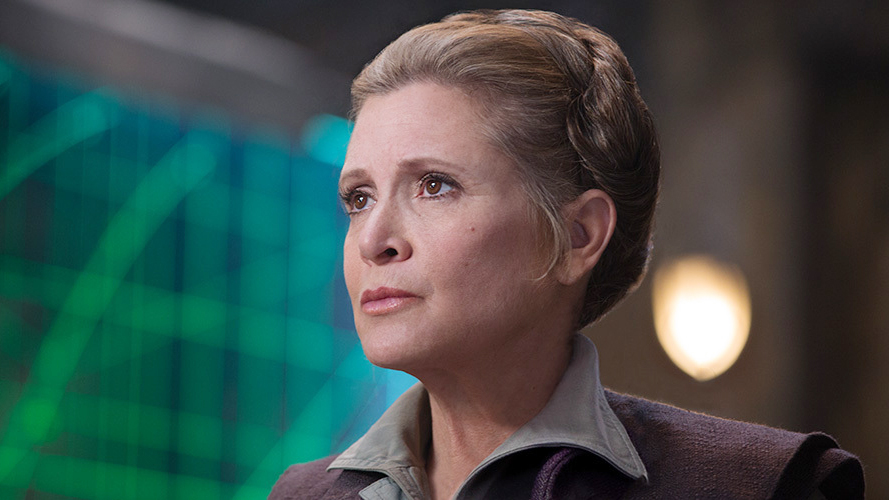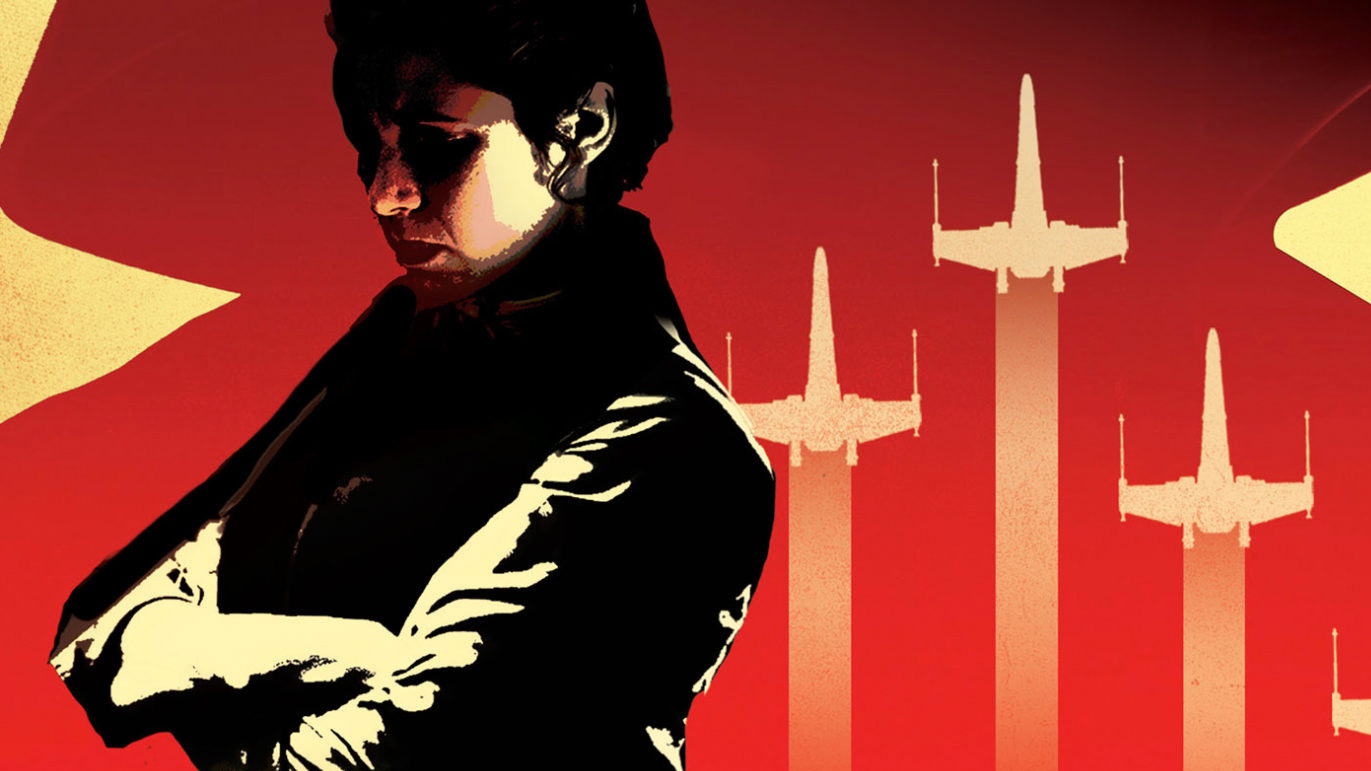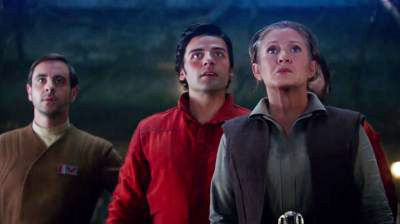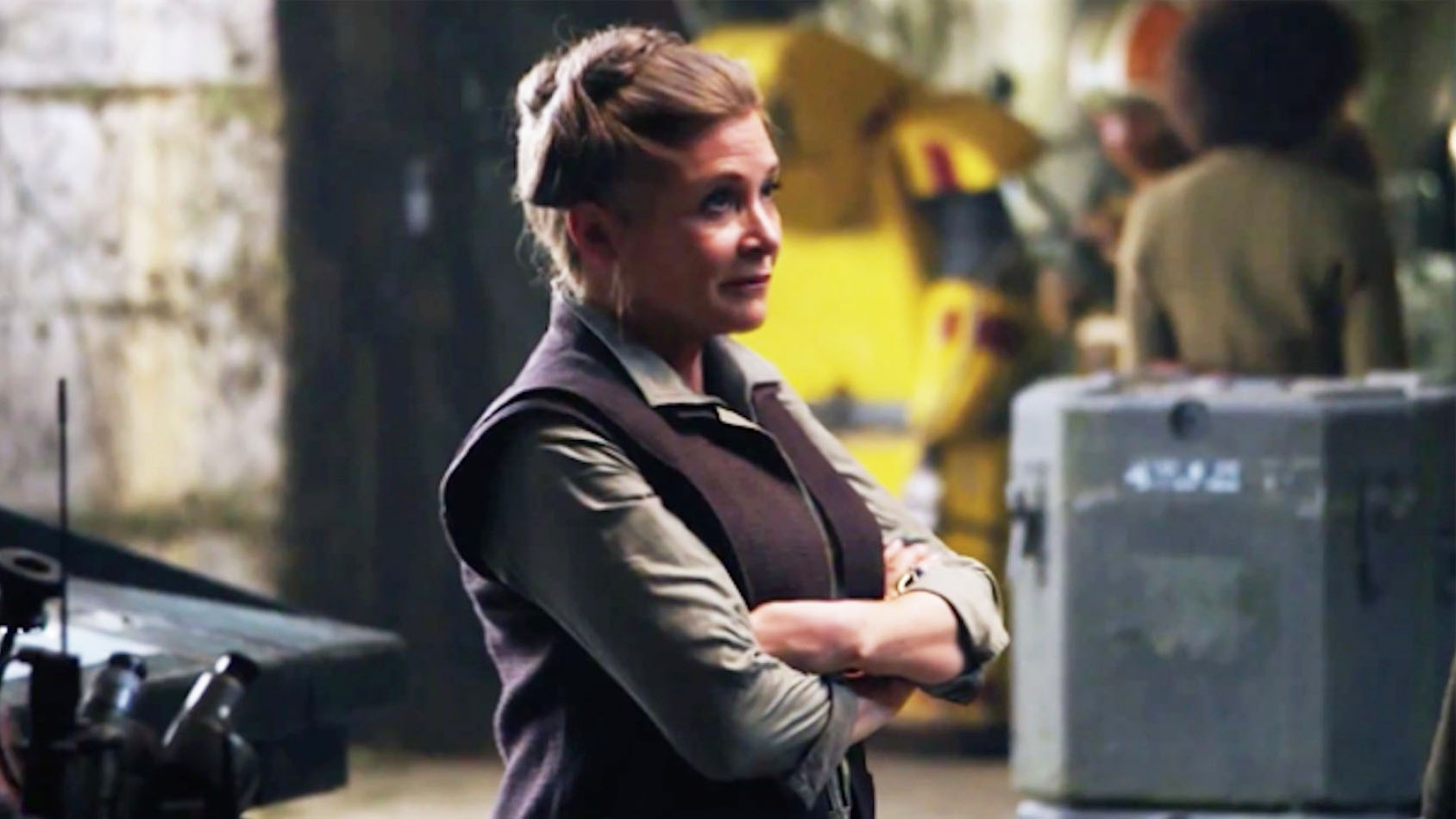Star Wars: Bloodline reveals the hidden history of Leia Organa and the First Order

We’re in limbo at the moment. Star Wars: The Last Jedi is still months away, the sacrificial rush of Rogue One now a fading memory. How do we fill that gap? With a book, that’s how. A book, with words, and feelings, and no pictures whatsoever. Controversial.
Star Wars: Bloodline has just been released in paperback, and it’s a worthwhile read for anyone who wants to know more about how the First Order came to power. It details the events leading up to The Force Awakens, with just enough mystery to leave the movie’s central questions unanswered. It provides glimpses into the private lives of Leia, Han, and their son, Ben, which are more interesting precisely because they’re so ordinary. More about that in a bit.
Now, this isn’t a book review - more of a gentle nudge from one Star Wars fan to another - but there are a number of reasons Bloodline is worth your time. I’ll try to explain them without spoiling anything, but click away now if you haven’t seen The Force Awakens.

First of all, it’s told from Leia Organa’s perspective. She remains one of the most complex and interesting characters in universe, but she’s too often overlooked. Much of what we know about her is revealed by other people. She’s Han’s love interest, or Luke’s sister. Bloodline adds depth and character in a way the movies never could, because Leia is a senator bound by duty. Not ‘general’. Not ‘princess’. Senator. She’s a key member of the Galactic Senate of the New Republic - the political body that rises from the ashes of the defeated Empire. But wait! Don’t close the tab yet. Bloodline proves that when Star Wars gets politics right, it’s gripping.
The Phantom Menace is the most overtly political Star Wars film, and it’s also the one that gets it horribly wrong. The opening crawl reads with the dusty indifference of a bad history book. Throughout the film, there no sense of a grand Galactic Senate; no political daggers shining in the dark. It’s a tepid, impenetrable wheeze, delivered with the stumbling indifference of a sixth grader sniffing his way through a presentation on the industrial revolution. Bloodline shows us what could have been.

It’s sharp, direct, unpredictable. By putting Leia in a position of political influence, it helps rationalise all the stuff that’s happened to her. She’s a war hero, but she doesn't have the comfort of being a Jedi recluse. She has a role to play, as the very public face of the Populists, an unofficial faction of the Galactic Senate. And while Han’s away managing a racing championship, Leia is bound by duty, unable to live the life she wants. It’s a different kind of sacrifice. The central political schism of the book is believable without being boring, and it’s also a smart reminder, as if you needed one, of how malignant political forces can rise without people even noticing. It’s a decent explanation of the First Order, with obvious parallels to historical events that are more fulfilling than simplistic analogy.
It’s also great at personalising the Dark Side of the Force. One of the central themes is Vader’s fall. He doesn’t have much time to be threatening in the original trilogy. He’s redeemed by the end of Return of the Jedi. Bloodline reminds you exactly how bad he was, and how Leia’s experiences differs from Luke’s. For Luke, it’s a simple fight for the soul of his father. Yes, he loses a hand, but he’s there when Anakin is saved. Leia, by contrast, spent her youth seeing Vader spread hate across the galaxy; he tortured her in A New Hope; she watched at his side when her home planet was destroyed. Most crucially, she wasn’t even there when he turned from the Dark Side. Luke has closure; Leia doesn’t. It’s far harder for her to forgive Vader. Bloodline is brilliant at explaining this, and the effect it could have on her family - especially her Force-sensitive son, Ben - is fascinating.
Get sneak previews, exclusive competitions and details of special events each month!

This loops back to what I mentioned earlier. Bloodline is more powerful because the ordinary moments contrast with the final events of The Force Awakens. Leia and Han are desperately searching for the chance to spend time together, but their responsibilities keep getting in the way. It’s a refreshing, humane way to look at Star Wars characters. By providing context, Bloodline works in much the same way Rogue One did for A New Hope. Just as the plans for the Death Star feel far more precious when you’re aware of who died to get them, the end of The Force Awakens feels more brutal when you’re reminded that Leia, Han, and Ben were once a happy family, albeit briefly. The fact that Bloodline only shows you snippets makes it even more precious.
Finally, Bloodline is more poignant because of the recent death of the wonderful Carrie Fisher. When you read passages about a diminutive, vivacious leader capable of intimidating people twice her size, you’ll absolutely be thinking of Fisher. And while I’m sad that we’ll only see one more Star Wars movie where she plays Leia, a bigger part of me feels lucky that we ever had her at all. Bloodline exists because Carrie Fisher brought depth, character and fire to Princess Leia.
Bloodline is a clumsy read at times - there are more descriptions of hair in the first 20 pages than in an issue of Marie Claire - but it’s a bright, devourable way of finding more out about the First Order. If you watched The Force Awakens wondering what the hell happened in the 30 years following Return of the Jedi, Bloodline is a smart place to start.



